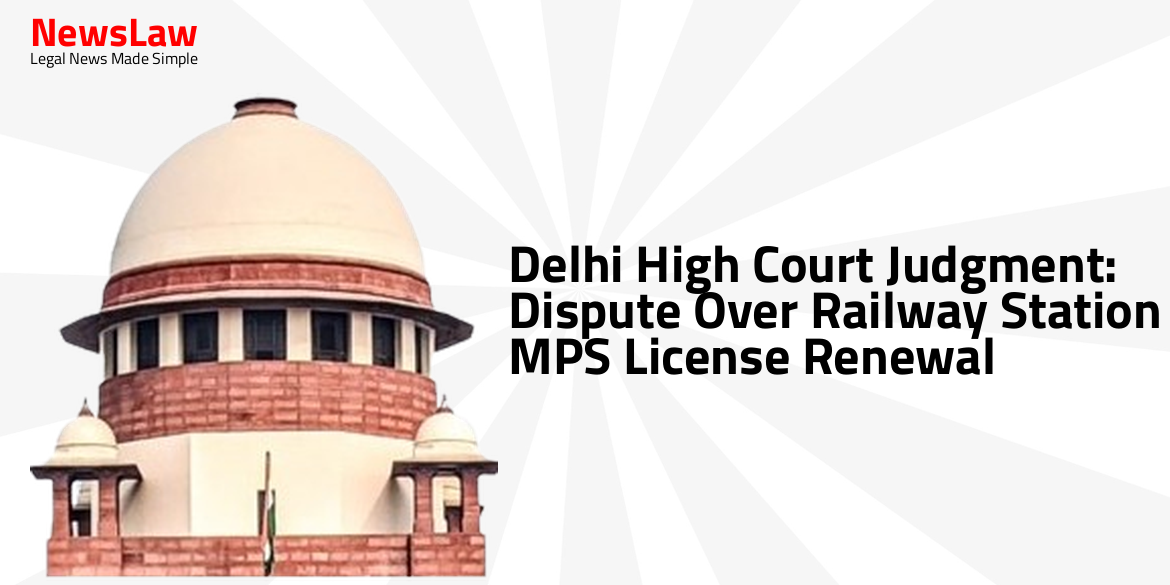The court’s thorough legal analysis in a recent case sheds light on the subsidy entitlement under the Rajasthan Investment Promotion Scheme-2003. Discover the nuanced complexities and implications of the court’s examination of the entitlement, revision powers, and application of legal doctrines in this detailed summary.
Facts
- Appellant’s case is based on availing subsidy under the Rajasthan Investment Promotion Scheme-2003 in accordance with decisions of the high-powered Board and Entitlement Certificates issued by SLSC.
- Respondents argue that benefits under the Scheme were withdrawn on 28.04.2006 and the State Government only intended to provide incentives within the limits of the Scheme.
- The appellant, M/s Ultratech Cement Limited, had two cement plants in Rajasthan and was previously known as M/s Grasim Industries Limited.
- State of Rajasthan and its officers, along with the State Level Screening Committee, are respondents in the case.
- The ACS determined that the Kotputli Unit of the company was only entitled to 50% of the payable and deposited Sales Tax/VAT as Capital Investment Subsidy, not the 75% claimed through erroneous Entitlement Certificates.
- Appellant was directed to provide relevant documents and the SLSC was instructed to issue a new Entitlement Certificate for subsidy limited to 50% of the total tax. Appellant must refund excess subsidy with 18% interest per annum.
- The petitioners availed subsidy benefits from February 2010 to February 2017.
- Show cause notice for revising the order under Clause 13 of RIPS-2003 was issued within the specified period.
- The argument that the exercise of power of revision after five years was unreasonable and arbitrary was dismissed by the High Court.
- The High Court considered clarifications and amendments made by the State Government regarding eligibility for subsidy benefits.
- The High Court noted communication from BIP and the MoU mentioning entitlement to benefits under RIPS-2003.
- Observation of corrective decisions by SLSC regarding the application for entitlement certificate and benefits.
Also Read: Limitation Laws in Insolvency Proceedings
Issue
- Extent of Capital Investment Subsidy entitlement under RIPS-2003 for the appellant’s Kotputli Unit.
- Validity of SLSC’s initial decision to grant 75% subsidy based on BIDI’s decision.
- Applicability of Contemporanea Expositio doctrine to the case.
- Possibility of recalling 25% subsidy by the respondent based on principles of promissory estoppel.
- Legality of State Government’s power to revise under Clause 13 of RIPS-2003 and its exercise in this case.
- Impact of already availed 75% subsidy before being questioned by the respondents.
- Justification for State seeking to recover interest at the rate of 18% per annum if the decision to recall the 25% subsidy is upheld.
Also Read: Tax Deduction at Source and Section 40(a)(ia) Disallowance
Arguments
- The petitioner-company believed it was entitled to a 75% subsidy under the proviso to Clauses 7(i)(a) and 7(i)(b) of RIPS-2003.
- The SLSC erroneously granted a 75% subsidy, which was later deemed ‘prejudicial to the interest of revenue’ under RIPS-2003.
- The contention of promissory estoppel was raised by the appellant, claiming entitlement to the subsidy as per commitments made.
- The subsidy granted did not align with the specific provisions of RIPS-2003 but was linked to a broader cement package announced earlier.
- The company made substantial investments based on the understanding of receiving the subsidy, as indicated in relevant documents and meetings.
- The petitioner’s interpretation of the subsidy under specific clauses of RIPS-2003 clashed with later revisions and deletions by the State Government.
- The SLSC’s decision to grant the subsidy was viewed as binding, and any subsequent attempt to revise it was questioned under the legal framework of RIPS-2003.
- The petitioner raised concerns over the refund of excess subsidy and argued against the imposition of interest under Clause 10 of RIPS-2003.
- The application of the doctrine of Contemporanea Expositio and relevant legal precedents were discussed in relation to the petitioner’s case.
- Revisional authority exercised power under Clause 13 of RIPS-2003 within the prescribed five-year period from the last date of availing the benefit.
- Principles of Section 72 of the Indian Contract Act suggest that any benefit received by mistake must be returned with interest to avoid unjust enrichment.
- Revisional order passed on 12.03.2018 falls within the stipulated period under Clause 13(b) of RIPS-2003 based on the last date of availing the benefit in February 2017.
- State Government rightly used revisional powers to set aside the erroneous 75% subsidy granted by SLSC even after related provisions were withdrawn in 2006.
- Issue of estoppel does not arise from the wrongful grant of subsidy by SLSC as it was corrected through revisional powers under the Scheme.
- Interest levy justified based on RIPS-2003 terms and conditions, requiring the appellant company to refund wrongfully received amount and compensate the Government with stipulated interest.
- Subsidy was part of a contract between State Government and appellant company, making the appellant bound by the undertaking to return any excess benefit with 12% per annum interest.
Also Read: Legal Analysis in Joint Trials Error
Analysis
- Term loan sanctioned by specified financial institutions must be utilized during the operative period of the Scheme.
- 75% subsidy to be calculated as 45% upfront and 30% on actual tax liability.
- Capital Investment Subsidy (Wage component) available if Capital Investment Subsidy (Interest component) is being claimed.
- Special conditions apply for new cement units exceeding Rs.400 crores investment and employing a minimum of 200 persons.
- Option to avail benefit under the scheme must be submitted within 180 days of the amendment.
- Commercial production must start within 5 years of filing the application for the option.
- Subsidies limited to specified rates and subject to conditions outlined in the amendment.
- Exemption notifications should be interpreted strictly, with the burden of proving applicability on the assessee.
- Ambiguities in exemption notifications should not benefit the assessee, but be interpreted in favor of the Revenue.
- Administrative constructions of statutes should generally be considered correct unless clearly wrong.
- Orders passed by Assessing Officers must be made with proper application of mind, as noted in the Dilip Kumar & Co. case.
- The principle that the assessee should be favored in cases of taxation when two views are possible has been disapproved by the Constitution Bench in Dilip Kumar & Co.
- Promissory estoppel cannot be invoked for enforcing promises contrary to law or outside the authority of the Government.
- Decisions that align with the disapproved principle in taxation matters have been overruled.
- Understanding of a statute by those who deal with it does not prevent the court from giving it its true construction.
Decision
- The court stated that the decision goes against the interest of the Government.
- The judgment highlighted the potential negative impact of the decision on government policies and functions.
- It was pointed out that the decision may hinder the effective implementation of important government programs.
- The court underscored the importance of considering the broader implications on government operations and objectives.
Case Title: M/S ULTRATECH CEMENT LTD Vs. THE STATE OF RAJASTHAN (2020 INSC 456)
Case Number: C.A. No.-002773-002773 / 2020



